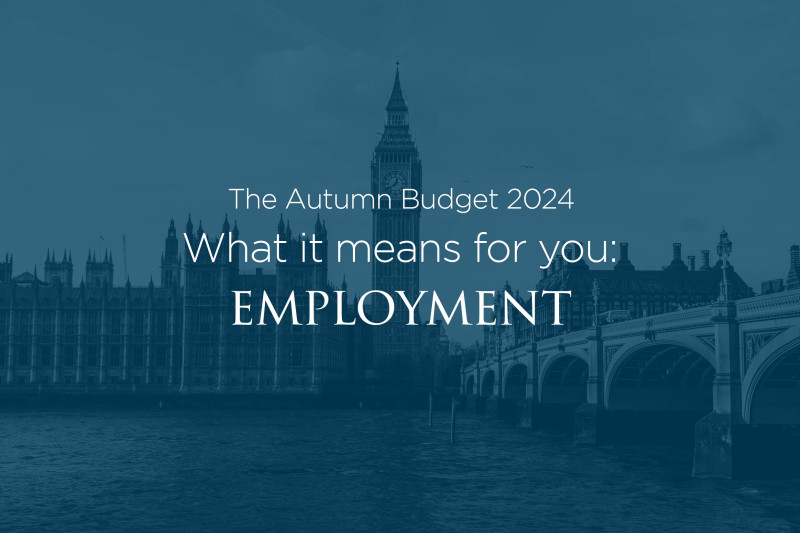The Autumn Budget: The key highlights - Employment

Today marks the release of the first Labour budget in 14 years. So how will this budget impact the UK labour market? James Conley looks at the key headlines:
Minimum Wage
Without a doubt, the headline changes relate to the increases to minimum wages. From April next year, the National Living Wage in the UK will increase by 6.7%, bringing it to £12.21 per hour. This means a full-time adult worker on the National Living Wage could see an annual increase of about £1,400.
In addition, younger workers will also see significant increases to their pay:
- 18 to 20 year-olds: The hourly rate will increase by over 16%, rising from £8.60 to £10. This could add around £2,500 to their annual earnings for full-time work.
- 16 to 17 year-olds and apprentices: The hourly rate will rise by 18%, reaching £7.55.
Carers allowance
If you're on Carer's Allowance, from April next year it will go from £81.90 per week to the equivalent of 16 hours at the National Living Wage per week (that's £195.36 at the new rate).
This means a carer will now earn over £10,000 a year on the allowance.
National Insurance
Employee National Insurance will be unchanged. The same cannot be said for Employer’s National Insurance contributions which will go up to 15%, an increase of 1.2%.
In addition, the threshold at which employers begin paying National Insurance on workers’ earning will be reduced from £9,000 to £5,000.
Employment Allowance
The Employment Allowance - which allows companies to reduce their National Insurance liability - is being increased to assist smaller businesses.
The allowance will increase from £5,000 to £10,500. The chancellor says this will mean 865,000 employers won’t pay any National Insurance at all next year.
If you require any further advice or assistance on any of the new changes, the Leathes Prior Employment Team are here to help.


